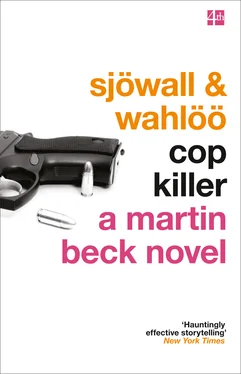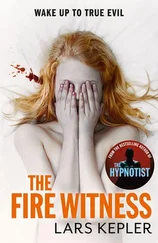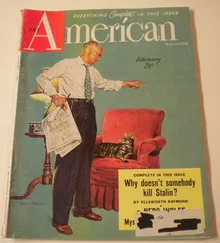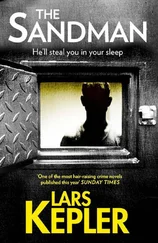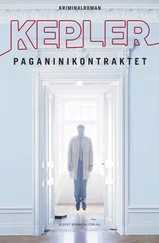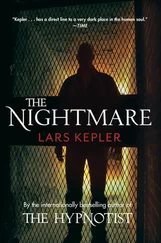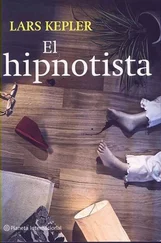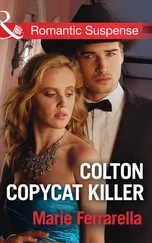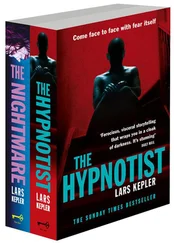MAJ SJÖWALL
AND PER WAHLÖÖ
Cop Killer
Translated from the Swedish by Thomas Teal

4th Estate
An imprint of HarperCollins Publishers 1 London Bridge Street London SE1 9GF
www.4thEstate.co.uk
This ebook first published by Harper Perennial in 2009
This 4th Estate edition published in 2016
This translation first published by Random House Inc, New York, in 1975
Originally published in Sweden by P. A. Norstedt & Söner Forlag
Copyright text © Maj Sjowall and Per Wahloo 1975
Copyright introduction © Alexander and Alexandra Ahndoril 2011
Cover photograph © Shutterstock
Maj Sjöwall and Per Wahlöö assert the moral right to be identified as the authors of this work.
A catalogue record for this book is available from the British Library
This novel is entirely a work of fiction. The names, characters and incidents portrayed in it are the work of the authors' imagination. Any resemblance to actual persons living or dead, events or localities is entirely coincidental.
All rights reserved under International and Pan-American Copyright Conventions. By payment of the required fees, you have been granted the non-exclusive, non-transferable right to access and read the text of this e-book on-screen. No part of this text may be reproduced, transmitted, down-loaded, decompiled, reverse engineered, or stored in or introduced into any information storage and retrieval system, in any form or by any means, whether electronic or mechanical, now known or hereinafter invented, without the express written permission of HarperCollins.
Source ISBN: 9780007439195
EPub Edition © 1975 ISBN: 9780007323425
Version: 2016-03-30
From the reviews of the Martin Beck series:
‘First class’
Daily Telegraph
‘One of the most authentic, gripping and profound collections of police procedural ever accomplished’
MICHAEL CONNELLY
‘Hauntingly effective storytelling’
New York Times
‘There's just no question about it: the reigning King and Queen of mystery fiction are Maj Sjöwall and her husband Per Wahlöö’
The National Observer
‘Sjöwall/Wahlöö are the best writers of police procedural in the world’
Birmingham Post
Cover
Title Page
Copyright
Praise
Introduction
Chapter 1
Chapter 2
Chapter 3
Chapter 4
Chapter 5
Chapter 6
Chapter 7
Chapter 8
Chapter 9
Chapter 10
Chapter 11
Chapter 12
Chapter 13
Chapter 14
Chapter 15
Chapter 16
Chapter 17
Chapter 18
Chapter 19
Chapter 20
Chapter 21
Chapter 22
Chapter 23
Chapter 24
Chapter 25
Chapter 26
Chapter 27
Chapter 28
Chapter 29
Chapter 30
About the Authors
Also by Maj Sjöwall and Per Wahlöö
About the Publisher
It’s dark and snow whirls from the rooftops in a Sweden where everything is perfect. As white as a thick layer of fresh snow on forest and land.
The snow-covered landscape here is an amazing sight, but we Swedish have always been a curious and strangely suspicious people. We want to know what’s hiding under the snow. We need to find out what’s underneath society’s pristine surface.
This need was probably the starting point for the Swedish crime fiction tradition; it all began with a healthy distrust. Because people here have always known that the brightness of summer is followed by winter, that the light is followed by the terrible darkness. And nothing is as it seems – the ice on the lake looks inviting but might be treacherous.
Maj Sjowall and Per Wahloo were both Marxists and they began writing crime novels because they had a burning desire to investigate and influence society. When they debuted in 1965 with Roseanna , the status of Swedish crime fiction was no higher than that of the comic strip.
The crime novel was clever, a bit academic and almost always bone-dry. It had been heavily influenced by British detective stories and their aristocratic heroes – gentlemen who solved puzzles with ice-cold logic.
Sjowall and Wahloo tore down the old curtains in the windows and invited in the dirty contemporary. Their style was closer to the American tradition, but they filled their stories with warnings of society’s dangerous conservatism, political corruption and human greed. In this way, they allied themselves with the people, the common man.
And – perhaps the most brilliant thing about their entire project – they were using a commercial genre to expose society’s hypocrisy and injustice. No one had done anything like this before and their tone had a rawness that made us gasp.
Sjowall and Wahloo made crime fiction a permanent part of our daily lives. It was a great and much needed change, and their novels became almost a movement.
But they might not have changed society as much as they changed the Swedish crime writing tradition. Even now, every Swedish crime writer has to pass Sjowall and Wahloo. They stand like two sentries guarding the genre.
But with a new tradition comes new rules and prohibitions, and the crime novel was soon formularized again. In the decades after Sjowall and Wahloo, a number of imitations had become trapped in that cage. The subversive social criticism sounded more and more mechanical and turned into a kind of alibi. Crime novels were suddenly expected to apologize for the entertaining side of the genre.
We grew up with Sjowall and Wahloo – they were powerful parents. But Lars Kepler is a wayward child, and he had to rebel, to break out and escape from the cage, along with his big brother Stieg Larsson.
Sjowall and Wahloo did not apologize and neither do we. We just love exciting thrillers. We want to combine the old tradition with a filmic pace. For us, this genre presents an opportunity to examine our own fears, to face them and weave them into great stories.
What a writing process is actually like in practice is always difficult to explain. We learn that Sjowall and Wahloo wrote alternate chapters. For them, it was the most creative method, pushing each other forward. Our method is completely different. We write like two people playing the piano together, four-handed. We don’t even write alternate sentences; we do everything together, like one person.
Writing is a way to discuss mankind, our shortcomings and our innate heroism, and for us, the crime genre is an optimistic genre. Only here can you make the world as it should be for a few wonderful hours – the violence ends and the perpetrators are stopped.
Sjowall and Wahloo books were a part of our childhood summers. We would both run to the library for these desirable books and read them during the long, bright summer nights. They were a leap into a whole new world. From childhood stories and into a raw, realistic tradition.
It is no coincidence that their books are mostly set in the summer. The world is bright and beautiful just like Swedish society, but we know that heavy darkness is approaching at a tremendous pace, just as we all know that violence is hiding under the surface.
So many years have passed since first reading their books but it’s a pleasure to meet them again. The storytelling is effective; the suspense is still there. Of course some things have dated; it is not entirely possible to ignore the simplistic rhetoric and the problematic portrayals of women. But on the whole, this dual authorship is unique.
Читать дальше
